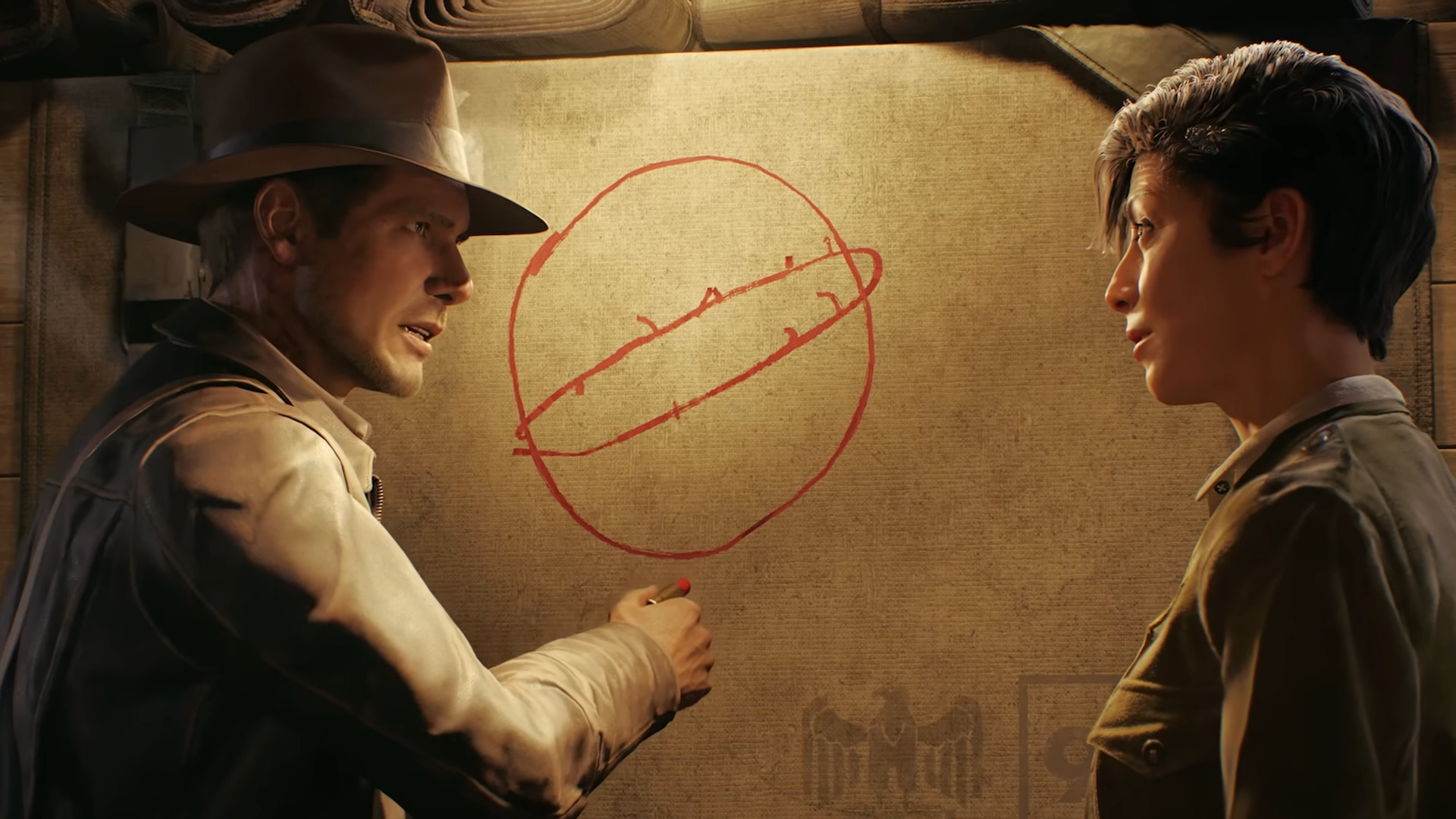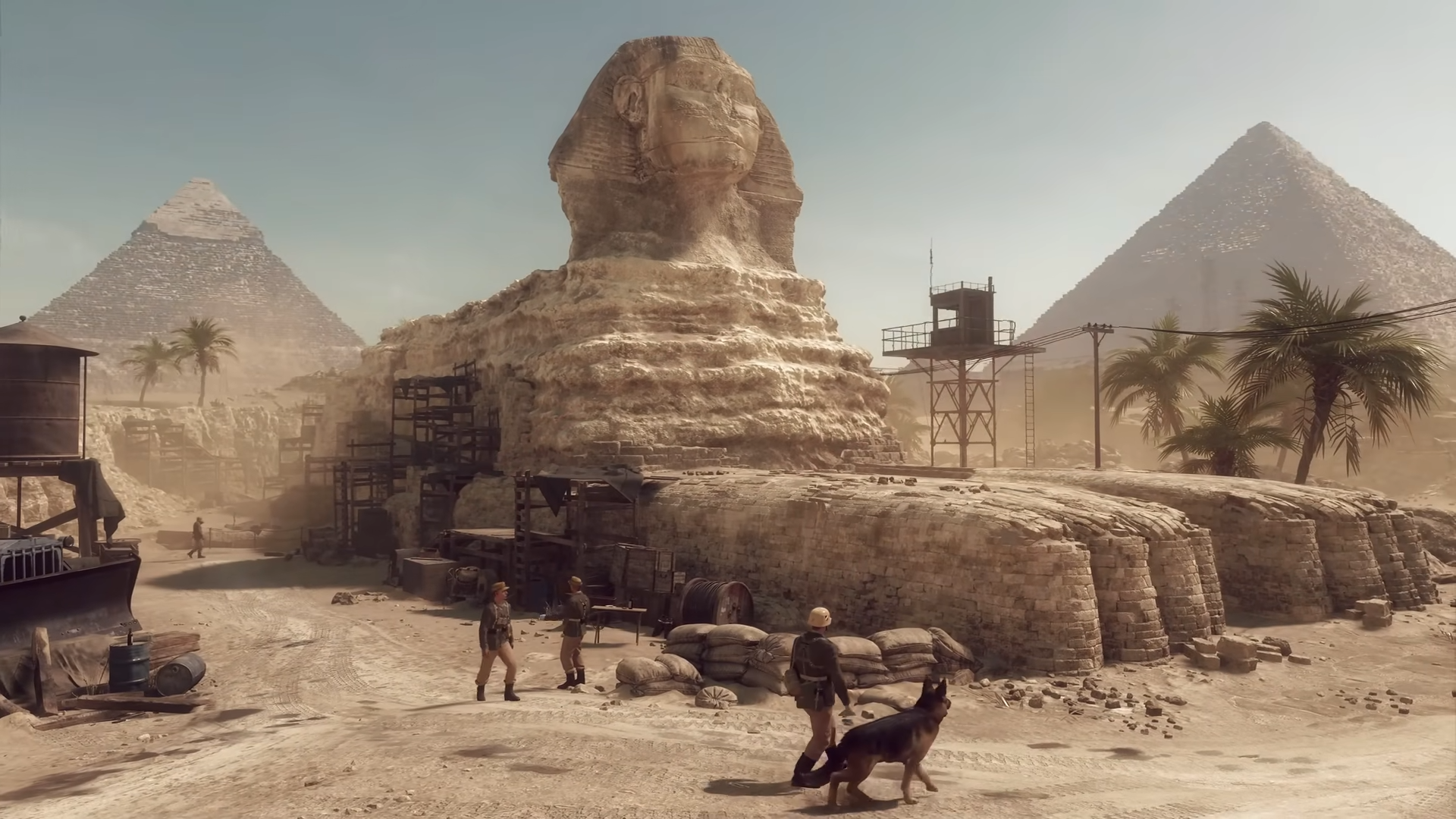Yes, the 'Great Circle' in the new Indiana Jones game is a real thing: Let's go down this conspiracy rabbit hole together
What is the real Great Circle, and what can it tell us about the new Indy game?

In case you haven't heard the good news, the Nazi-punching experts at MachineGames revealed their next game during yesterday's Xbox Developer Direct stream: Indiana Jones and the Great Circle. It was a strong debut for the long-awaited action adventure project, and in keeping with the Wolfenstein studio's speciality, we were pleasantly surprised to learn The Great Circle is a first-person game.
Watching Indy whip-trip a Nazi before popping another guy with his revolver was basically all I needed to see to get excited, but I'm also intrigued by the central mystery he'll be obsessing over: the "Great Circle" itself. We hear a brief explainer from Indy in the trailer:
"Throughout history, mankind has built sites of great spiritual significance. If you were to draw a line through these ancient sites around the globe, you get a perfectly aligned circle." At the end of the trailer, Indy discovers evidence of the "protectors of the Circuli Magni: The Great Circle."
It's a great premise for an Indy game—a global circle of ancient wonders and a secret society that protects them—but it wasn't just made up by MachineGames: The Great Circle is an actual semi-obscure internet theory that's been kicking around for decades. What is the "real" Great Circle, and what might it tell us about the Indy game? Get your map pins and conspiracy yarn out and let's investigate.

What is a "great circle"?
There are technically lots of "great circles": great circles are a mathematical term used to describe the circle that's created when you split a sphere into two equal hemispheres. Any circle you draw around Earth's globe that splits it in half is a great circle. It's also called an orthodrome.
The "real" Great Circle theory
The specific Great Circle we're talking about comes from a blogger named Jim Alison (at least, he's the earliest reference I can find for the theory online). Sometime around 2001, Alison published an article that charted 17 ancient sites, including the Great Pyramid of Giza, Machu Picchu, Nazca, and Easter Island, that happen to align near-perfectly on a single great circle. We know Indy makes a stop at the Giza pyramid from the trailer, so that's a solid clue we're talking about the same cricle here. Not every site aligns exactly with the circle, but each one listed is no more than 5-25 miles away. It's kind of a neat observation:

Throughout the 13-part article Alison draws all sorts of connections between the sites beyond their chance alignment, looking for meaning in measurements and even noting the circle's proximity to theorized locations of Atlantis. It's pretty dry stuff. I did not read the whole thing and I recommend you do the same, though it seems like Alison was less interested in asking "why" and more interested in the geography that binds it all together.
The biggest gaming news, reviews and hardware deals
Keep up to date with the most important stories and the best deals, as picked by the PC Gamer team.
Does the Great Circle actually mean anything?
Perhaps the Great Circle's inherent mathy-ness is what's held it back as an internet conspiracy. A few fringe science sites have cited Alison's blog in their summaries of the Great Circle and there's an odd video about it here and there, but it hasn't left a big impression on the conspiracy community. Maybe it's because it's so easy to dismiss: you could draw a line around the globe anywhere and make thin connections between the historical places that align with it. A comment on a 2013 Reddit thread about the theory from user Vietoris sums it up best, I think:
"Any line going around the Nile delta or the valley between Tigris and Euphrates is bound to cross some very ancient landmarks. Surely if it weren't the great pyramids, Petra and Persepolis, it would have been the great library of Alexandria, Abu Simbel, Thebes, Mount Sinai, Babylon, Jericho, …"
The highest-profile appearance of Alison's research came in a 2019 TEDx talk from self-described "inventor, researcher, filmmaker, skeptic, story teller and explainer" Roger G. Gilbertson, who used Alison's Great Circle as a call to action for scientists to search Earth's seabeds for yet-undiscovered ancient civilizations. A note from TED added in the description of the YouTube upload flagged the talk for sharing claims that "only represent the speaker's personal views which are not corroborated by scientific evidence."
So while the Great Circle is a D-tier conspiracy theory at best, it does make for a fun jumping-off point for Indiana Jones. It sounds like MachineGames is alluding to some sort of ancient society that protects the circle, though I wonder how they'll explain its origins. Were they guided by the stars? Linked by lands now buried under oceans? Maybe Indy will find the lost city of Atlantis like Alison hoped. All I know is I wouldn't go the aliens route, seeing how poorly that went in Kingdom of the Crystal Skull.

Morgan has been writing for PC Gamer since 2018, first as a freelancer and currently as a staff writer. He has also appeared on Polygon, Kotaku, Fanbyte, and PCGamesN. Before freelancing, he spent most of high school and all of college writing at small gaming sites that didn't pay him. He's very happy to have a real job now. Morgan is a beat writer following the latest and greatest shooters and the communities that play them. He also writes general news, reviews, features, the occasional guide, and bad jokes in Slack. Twist his arm, and he'll even write about a boring strategy game. Please don't, though.

